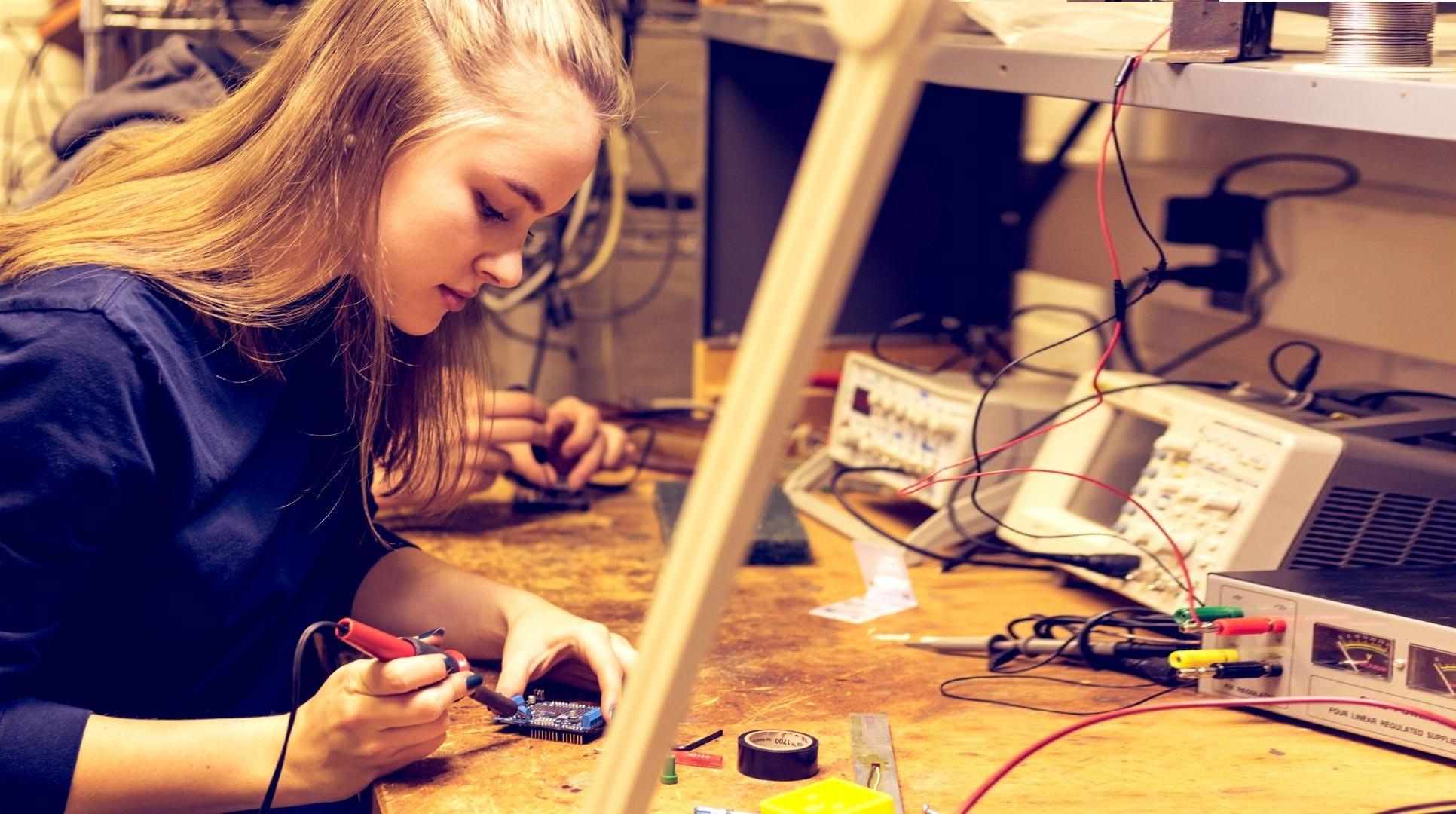Therese Niss, initiator and board member of the Austrian MINTality Foundation, gave iGlobenews an exclusive interview and discussed how the foundation she helped create will increase the number of women in STEM areas – science, technology, engineering and mathematics. MINtality has the financial backing of industry, the Chamber of Commerce, businesses and the Innovation Foundation for Education. It wants to fight against societal preconceptions and misconceptions about careers in STEM areas. Women can be as successful in these areas when given the chance.
Diana Maunter Markhof, 16 May 2022
Therese Niss, initiator and board member of the MINTality Foundation, gave iGlobenews an exclusive interview and discussed how the foundation she helped create will increase the number of women in STEM areas– science, technology, engineering and mathematics. Dr. Niss is not only a parliamentarian for the ruling People’s Party (ÖVP), but also comes from an industrial family and serves on the Supervisory Board of her family’s business – Mitterbauer Beteiligungs-AG (MIBA AG) – an energy technology company producing components for energy generation, storage and transmission. Although she is not a scientist or engineer, she grew up appreciating the importance of STEM areas and knew from her own family background how few women choose careers in the STEM field.
MINTality is a foundation aimed at encouraging girls and women to enter STEM areas. In German, STEM is translated into MINT – hence the name MINTality. Industry is constantly looking for highly qualified people in the STEM fields, and attracting more women to fill these jobs not only improves their own career prospects, but also helps companies to fill these vacancies.
In Austria almost half of all female apprentices work in the typical ‘female’ occupations of retail saleswoman, office administrator and hairdresser. Yet there are more than 200 different fields of apprenticeships. Technical training offers many advantages for girls and women, as well as better pay and better pensions.
Together with the IHS –Institute for Advanced Studies Vienna – Dr. Niss conducted an empirical study, which led to the development of a digital educational game called Robitopia. The IHS is an independent well-established post-university research center focusing on research questions relevant for future societal challenges. It is primarily funded by the Austrian Federal Ministry of Finance, the Austrian Central Bank, the Austrian Economic Chamber (WKO) and the University of Vienna. Robitopia aims to increase women in STEM fields. It was designed to show girls aged 7 to 8 how jobs in STEM areas can be interesting, fun and exciting. The joint study concluded that by playing this game for 10 minutes a day for four weeks many girls discovered their interest in STEM professions. MINTality now advocates the use of the digital educational game Robitopia in school curricula in Austria.
The reality is that STEM subjects and careers are not considered feminine or even appropriate for girls and women, and that there is a pervasive conditioning to this effect. MINTality wants to help change the traditional role models of girls and women. Supporting diversity and showing that women can succeed in STEM studies and professions is what MINTality advocates. Yet Therese Niss does not want to start a “revolution”. She believes that it will be a “win-win” situation for companies and society at large if MINTality succeeds in achieving its goals.
MINTality has the financial resources to achieve this goal. The founding 12 partners of MINTality include Fronius International GmbH, Miba AG, KNAPP AG, Magna International Europe Group, Oberbank, Greiner AG, TGW Logistics Group, Umdasch Group Foundation, A1 Telekom Austria AG, Federation of Austrian Industry, Austrian Federal Economic Chamber and the Innovation Foundation for Education. These companies and organizations have committed to donate EUR 1.2 million a year for three years to support the goals of MINTality.
The Innovation Foundation for Education was established by the Innovation Foundation Law in January 2017 and supports strategic research to develop and renew Austria’s education system. It aims to raise the level of competence, innovation and education for all age groups in Austria by supporting projects such as MINTality.
The goal of MINTality is to fight against societal preconceptions and misconceptions about careers in STEM areas. Women can be as successful in these areas when given the chance. MINTality wants to achieve this goal by using social media to attract girls to STEM professions, by amplifying already existing educational initiatives through financial and logistic support, by educating teachers in the STEM areas, and by supporting girls and young women who are interested in pursuing STEM professions and education through a mentorship program. Their target group are girls and young women aged 6 to 18. Therese Niss sees MINTality as a do-tank not a think tank
Although the media are keen to proclaim our future is green and digital, Dr. Niss has her own answer, namely, “the future is female”. She strongly believes, “if you want to change the world, go into a STEM area. We will only solve the environmental/climate crisis with technical innovations. That is why we need women – we need girls to be part of this solution.”







